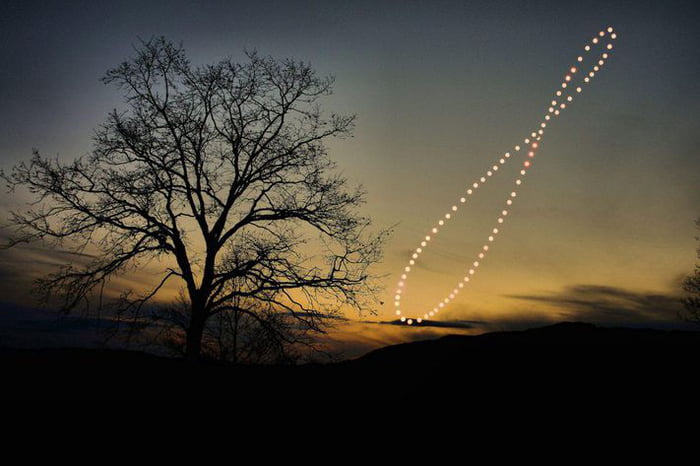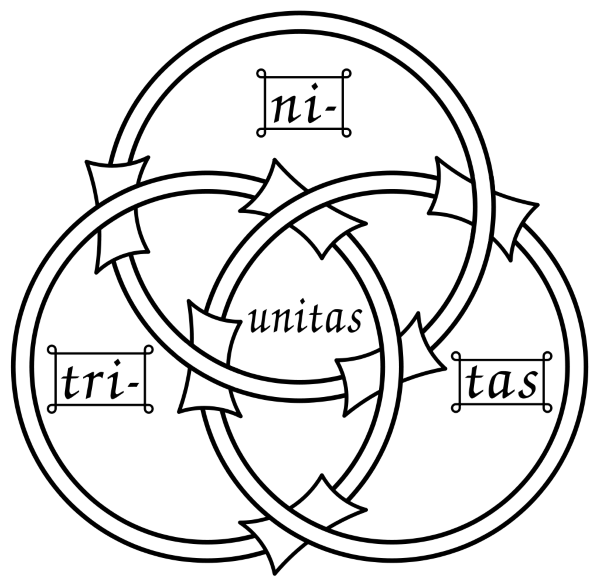It is utterly impossible for something to arise from true absolute nothing. This can be seen immediately by anyone imagining an infinite expanse of nothing... first comes the paradox of where this nothing exists. It has no dimension, size, shape, form, feature, nor attribute of any kind. It is pure, absolute nothing, nowhere. If this can be imagined, then imagine something coming into being from that nothing.
It cannot be done.
There is absolutely no way that something can arise from nothing. Although the mind can actually imagine something appearing out of nowhere, remember, this is happening in the mind, which itself is "something." We're trying to imagine something that is so featureless it is not contained within a mind, nor anything -- or else it would have the feature of "being contained within a mind," if no other. Consider this from a hundred different directions if you will, and you will never be able to establish something out of true, pure, nothing. In fact, the more you try to do so, the more you will convince yourself that such a nothing itself cannot exist!
 But before we deconstruct the idea of nothing itself, let's invert the challenge -- simply as a thought experiment, to see where it goes -- and consider whether "nothing" can arise from "something." It turns out, this is fairly easy to imagine. Imagine a primordial something which contains at least the primordial origin(s) of all features, attributes, forms, shapes, sizes, dimensions that will ever exist -- including "nothing." This is possible to imagine. You'll find some resistance to the nothing-from-something idea (because there is a hidden cultural assumption closely related to this) but we're doing a simple thought experiment which goes back before all cultural assumptions ever came to be. Keep it pure, and you'll soon see. The thought of nothing arising from something is not only possible, but with a little consideration, you may see that this order of ontology -- beingness -- is the only logically valid possible order, if logic works at all. Note, it helps that we're working with such basic primitives as "something," "nothing," "existence," and "non-existence" at this point. We do not need to describe this mysterious foundational something in any detail, except to say that it is "that from which all that is comes into being." We can perhaps hope that we're not offending some god somewhere who we're describing with such cavalier language, but that is not where we're going with this, so if you want you can pick that up later in your private contemplations. Once we accept the existence of "something which contains all that is," and compare it with the existence of "pure nothing" as described above, we see that, even if it has no other attributes, even if the logic can somehow be seen to be weak somehow, the "something" origin is logically (by Occam's razor) more tenable than the "nothing." So then our next question reasonably becomes "can nothing arise from something?"
But before we deconstruct the idea of nothing itself, let's invert the challenge -- simply as a thought experiment, to see where it goes -- and consider whether "nothing" can arise from "something." It turns out, this is fairly easy to imagine. Imagine a primordial something which contains at least the primordial origin(s) of all features, attributes, forms, shapes, sizes, dimensions that will ever exist -- including "nothing." This is possible to imagine. You'll find some resistance to the nothing-from-something idea (because there is a hidden cultural assumption closely related to this) but we're doing a simple thought experiment which goes back before all cultural assumptions ever came to be. Keep it pure, and you'll soon see. The thought of nothing arising from something is not only possible, but with a little consideration, you may see that this order of ontology -- beingness -- is the only logically valid possible order, if logic works at all. Note, it helps that we're working with such basic primitives as "something," "nothing," "existence," and "non-existence" at this point. We do not need to describe this mysterious foundational something in any detail, except to say that it is "that from which all that is comes into being." We can perhaps hope that we're not offending some god somewhere who we're describing with such cavalier language, but that is not where we're going with this, so if you want you can pick that up later in your private contemplations. Once we accept the existence of "something which contains all that is," and compare it with the existence of "pure nothing" as described above, we see that, even if it has no other attributes, even if the logic can somehow be seen to be weak somehow, the "something" origin is logically (by Occam's razor) more tenable than the "nothing." So then our next question reasonably becomes "can nothing arise from something?"
Given the previous paragraph where such a nothing-arising-from-something is loosely described, you might think "Yes." However, the answer here is, in purest form, also "No." Think about it: Perfect nothing, the void, pure emptiness without any features, cannot come out of "something" because if it did, it would have at least the feature of being "that which came out of something." This is not "nothing, having no features." In other words, in order for pure nothing to exist, then something could not ever have existed, and because "the existence of something" is more tenable than "the non-existence of nothing," we have to reject the purest form of nothing as being as equally impossible as "something arising from nothing."
This might seem to be an end of a good exercise, wherein we have established the following:
1. It is utterly impossible for something to arise from true absolute nothing. 2. It is possible for there to be something from which all that is arose. 3. It is utterly impossible for true absolute nothing to arise from something.
However, look at that second statement: "It is possible for there to be something from which all that is arose." With absolute nothing being impossible either way, is it possible for such a primordial something to bring into being a nothingness which is nearly free of all attributes? In short, is it possible to create an emptiness which is almost perfect? Here, we find that we can at least imagine a region of near-perfect nothingness within the primordial something. And here we have stumbled upon something amazing. Using extremely simple primitives such as "nothing," "something," and "nearly-nothing," and applying a little logic, we have established at least the possibility of nearly-nothing. Let's add it to the list above:
4. It is possible for nearly-nothing to arise from, or within, something.
In short, even though it is impossible for there to be a region of perfect nothingness, it is possible for something, from which all that is arose, to hold a region within itself which contains nearly nothing. As we continue from here, we see that, having established the possibility of nearly-nothing existing within all-that-is, we should next determine whether the nearly-nothing actually did, historically, or will, in the future, come into being. We need not eliminate the present, but as the present contains at least the appearance of a lot of something, a something so complex that it could arguably contain nearly-nothings, it seems unlikely that the present is the beginning. Here, we find a nearly infinite variety of nearly-nothings which could fulfill our rather loose description. For example, we could have a nearly-nothing which is "shaped like a diamond" and has no other features, being mostly nothing. Or we could have a nearly-nothing which is "extremely hot" and has almost no other features. Or, a nearly-nothing which is "nearly infinite in size" (for it cannot be infinite in size, or else it would burst its container -- which is the something, even if the only feature the something has is that it contains the nothing.) No, it cannot be infinite. It must be bounded. Let's add to the list:
5. When there is a nearly-nothing, it cannot be truly infinite in size, or else we contradict #3 above.
Now we have established the (likely) existence of something, and established a region within it which contains nearly-nothing.
 We see that we're basically describing a finity contained within an infinity. This nomenclature, finity and infinity, may seem to be a bold step, since we have been moving more carefully up to this point. To say that the something out of which all that is has a finity within it, which is nearly-nothing, seems like a big leap. But remember, we're in the middle of a thought experiment; we needn't assume that our idea of finity actually corresponds to an actual finity. We're not there yet. But we can contemplate what it looks like for something to create a region within itself wherein a nearly-nothing exists, and understand this: from the perspective of the nearly-nothing, the something is infinite in comparison.
We see that we're basically describing a finity contained within an infinity. This nomenclature, finity and infinity, may seem to be a bold step, since we have been moving more carefully up to this point. To say that the something out of which all that is has a finity within it, which is nearly-nothing, seems like a big leap. But remember, we're in the middle of a thought experiment; we needn't assume that our idea of finity actually corresponds to an actual finity. We're not there yet. But we can contemplate what it looks like for something to create a region within itself wherein a nearly-nothing exists, and understand this: from the perspective of the nearly-nothing, the something is infinite in comparison.
Think of it this way. Who could stand in the middle of nearly-nothing, look out at all that was, is, or ever will be, and see anything other than the greatest expanse of infinity possible to ever be seen? What, shall we imagine standing in the middle of nearly-nothing -- which has arisen within everything -- and say "Oh, the everything isn't much. It's ultimately finite much like the nearly-nothing." Yes, it's theoretically imaginable, but our minds should rapidly see that it's again far more likely that the opposite is the case:
6. Looking at everything from within nearly-nothing is like looking from finity into infinity.
So let's continue the thought experiment along this fruitful line, and consider more of the nature of the nearly-nothing, finity, and the something-that-is-everything, which includes a nearly-nothing.
How could the everything generate a region of nearly-nothing in itself? Would this be an instantaneous appearance? Or would it require time? Heat? Space? What other features would come to be? How would the appearance of nearly-nothing affect the already-existing? Does time yet exist when the nearly-nothing gets created within the everything, or is time a later attribute, feature, dimension, or side-effect of the process? There are many questions like this.
It turns out, we can continue along this fairly parsimonious path of thought experiment, and see, among the infinite ways possible for nearly-nothing to come into being, some are actually possible and some are not. For example, we have already ruled out that the nearly-nothing can be infinite. Can we also rule out that it is hairy? Yes, at least at first, we can. While it is possible to accept that a hairy nearly-nothing came into being, it's not very parsimonious to do that, unless we accept the possibility that utterly random things happen. We'll get to random later, but for now, let's say that parsimony prevents us from jumping right into hairy nearly-nothing... and lots of other kinds of nearly-nothings.
So, let's keep it simple for now. Let's stay, instead, closer to the primitives, and consider more of the nature of the nearly-nothing without making giant leaps into attributes like "hairy," or "smelly," or even "virtuous," or just about any features which we are normally acquainted with measuring in our day-to-day lives. Clearly, there are many features which have required billions of years of evolution. Let's go backwards down the evolutionary ladder to very simple features, like "existing" and "not-existing," or "large" and "small," and see if we can find more about our origins.
To be continued...
